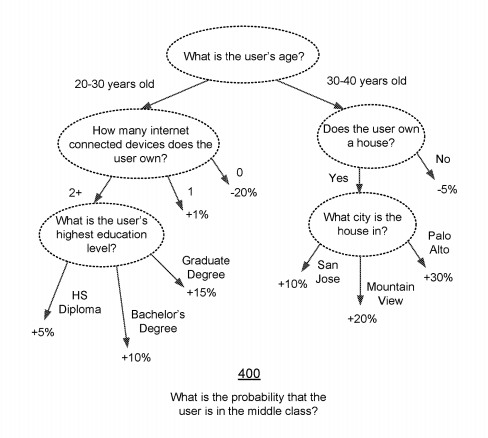SUMMARY
This is AI generated summarization, which may have errors. For context, always refer to the full article.

MANILA, Philippines – A Facebook patent reveals the social network’s intention to identify a user’s socioeconomic class using data including how many gadgets a user owns or where he lives.
The US patent, called “Socioeconomic Group Classification Based On User Features,” went public in February but was originally filed in July 2016. In the document, Facebook illustrates a way for its algorithm to automatically identify if a user is from the “working class,” the “middle class,” or the “upper class.”

The factors that are taken into consideration are the number of internet-connected devices a user owns; their educational attainment; whether they own a house or not; and where the house is located. The answers to each question carry a different amount of points or weight. In terms of connected-device ownership for example, a user gets a 20% deduction if they do not own one; and gets a boost of 1% when they own one; and possibly, more with each additional device owned.
The city a user lives will also be a factor as Facebook tries to determine whether you’re rich or poor. In the illustrated example, living in San Jose nets a 10% score boost; living in Mountain View nets 20%; while living in Palo Alto, known for being an affluent location, boosts a user score by 30%.
The score is tallied, and the system determines what the user’s socioeconomic class is. The information, according to Facebook’s application, is for the use of “third parties to increase awareness about products or services to online system users” such as corportation and charities.
In other words, Facebook’s socioeconomic identification data could be used by companies to further specify which class they want to market their products or services to.
Engadget feels that with the way the patent is currently set-up, Facebook, in the future, could also make use of other personal information such as which restaurants a person goes to or what shoes they wear to determine social class. Engadget also cites Google engineer Jeremy Kun, who thinks that algorithm-based classification may lead to indirect discrimination that may put lower class individuals at risk.
Kun believes that that is illegal:
“E.g. if people in poorer neighborhoods are disproportionately shown ads for predatory loans because an algorithm decided it has higher clickthrough – they have fewer chances for a fair loan treatment because they aren’t exposed to normal loan offers. Is that direct or indirect? In either case, it’s illegal. Even if a practice is not racist by intention, it can have an disproportionate adverse impact on a particular racial class, and so it’s still considered illegal.”
Beyond the patent’s simplistic approach to class identification, what may prove to be even more problematic is the fact that people may be targeted according to their social class.
At a time when disinformation campaigns run rampant on the platform – and with Filipinos being ranked as third most ignorant in the world on key issues – such a tool has the potential of being turned into yet another weapon for info-ops specialists. – Rappler.com
Add a comment
How does this make you feel?
There are no comments yet. Add your comment to start the conversation.